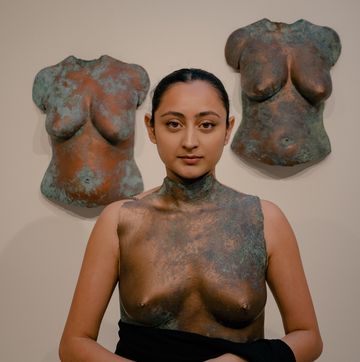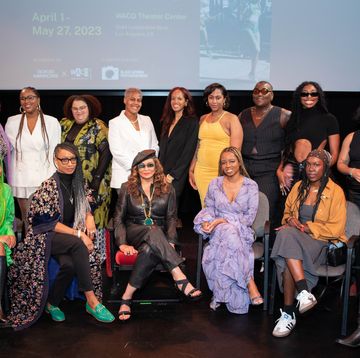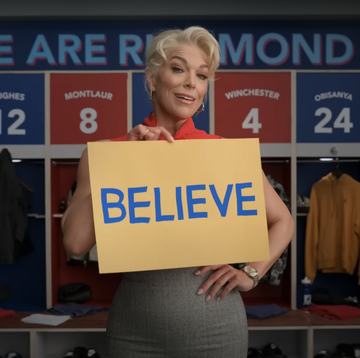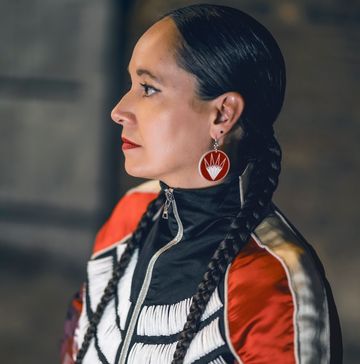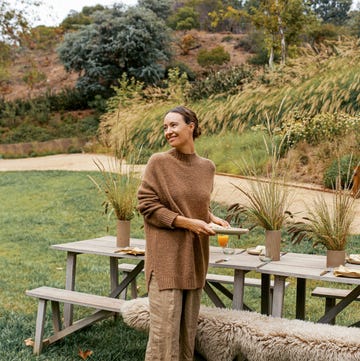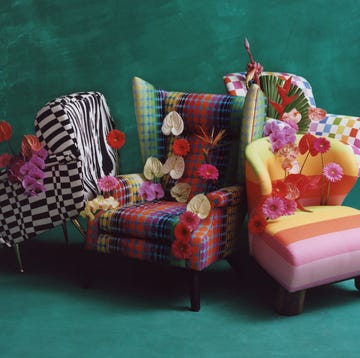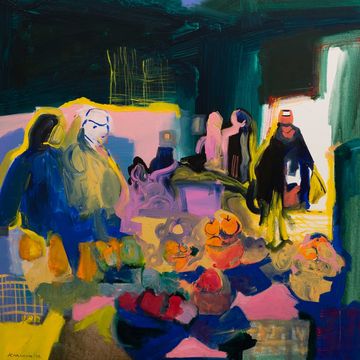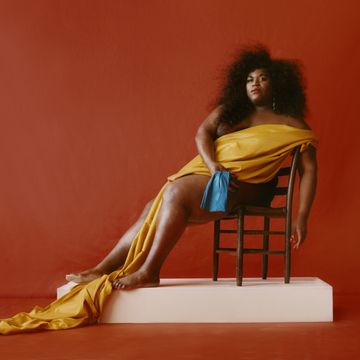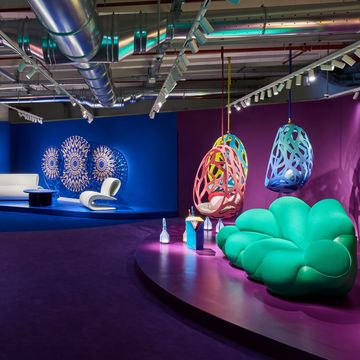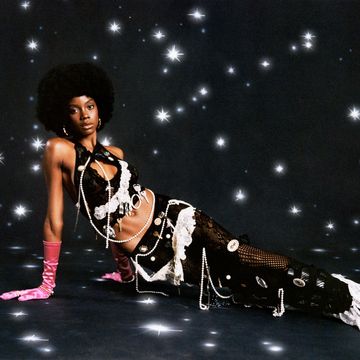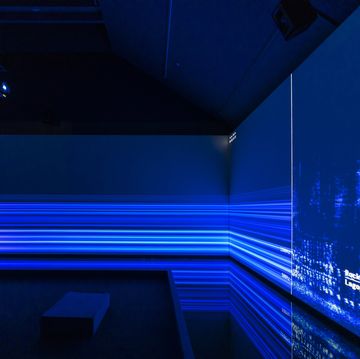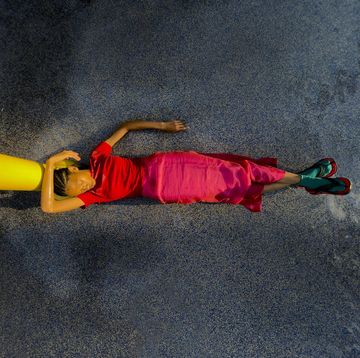It’s 10 a.m. on a Wednesday, and Carolina Rubio-MacWright is sitting at a long table inside a Brooklyn pottery studio, laminating small three-inch cards by hand. They’re "Know Your Rights" cards that she plans to give out to the handful of immigrant women who will soon be populating the same table where she sits. On one side are a few affirmations written in Spanish. On the other, in English, is a declaration of rights to be given to the police. One side reads, "Soy guerrera poderosa" ("I’m a powerful warrior"); the other starts with "Hello, Officer."
These are the two messages Rubio-MacWright, 37, an artist and immigration lawyer, is trying to impart during her free Wednesday morning class at Bklyn Clay, a class that she’s crafted and created for immigrant women. It’s intended to be an environment for learning, where she can demonstrate how to turn a pile of clay into a bowl or a mug, but it’s also where she can teach them what to do if they're detained. When they walk away from class, she wants them to feel like they have power, like they are seen. And she wants to get there by using clay.
"Clay has incredible properties," she tells me, as we sit at the counter of a pie shop in Prospect Heights, the studio's new neighborhood. "You’re working with your hands, which really almost untriggers you or relaxes you. It has that therapeutic feeling to it." She continues, "It has a lot of allusions to life, the idea of destroying the clay and restarting. Also, this idea of 'I built something. I didn’t expect anything from this, and now I’ve created something.'" She says the transformation is not only with the clay, but with the women who come to her class. "Some would immediately start telling really private things. We saw others that, through the class, left their abusive husband or knew what to do if ICE showed up."
This particular Wednesday happens to be the day after President Trump’s annual State of the Union address, where he spent part of the night speaking about "illegal aliens," "criminal aliens," and the need for a steel barrier to be placed at the border of our country. It is also the day when the women in Rubio-MacWright's class will finally see the pieces they’ve been working on for weeks. Rubio-MacWright has placed gold lamé fabric over the top of the art, so she can pull it off in a flourish. She’s brought coffee and apple pie (very "Americano," she says) for the six women who were able to come that day. As they talk about the work in Spanish, one woman begins to cry. Later when I ask Rubio-MacWright to translate, she explains that she became emotional after seeing her finished piece, saying, "I never thought I could do something like this."
The class itself is something Rubio-MacWright has been working on for years; she's done similar ones with survivors of domestic violence and other groups of men and women. She's found that art is an equalizer, a task that immediately puts everyone at the same level, and because clay is a part of so many cultures, it’s an easy entry point. Her classes typically include an intimate 10 to 13 people so that conversation can be open and honest.
While there are other "Know Your Rights" workshops in the city, Rubio-MacWright finds them to often be too public and too ineffective. But here, the classes can morph into whatever the women need them to be. Once, the topic of wages came up. When Rubio-MacWright found out some of the women were only making $8 an hour as domestic workers, she decided to make that day’s class about talking to your boss and asking for more money. At one point, Jennifer Waverek, the owner of the studio, role played as a boss so the women could act out what to say. She'll even bring examples of warrants to class to show the women what a legitimate one should look like; she'll also bring them a fake one so they can learn to identify what's wrong with it.
"If somebody comes in and they’re having a problem with a landlord, Carolina can say, 'OK these are what your rights are, this is what you can do,'" Waverek tells me. "And having that within the arts environment makes it less weird to talk about. If you’re already in a class that has the arts, you have a resource to go to that’s safe and that’s part of your community. There’s so many different things you get by being part of a community beyond the immediate task. These students get the same studio access that any other student gets. So they could be doing work next to someone who could hire them or work for a babysitter. Yes, the art classes are important and the ceramics therapy is important, but it’s also about having resources beyond what you might have access to in your smaller community."
Waverek and Rubio-MacWright first began working together after Rubio-MacWright was approached by the organization ChaShaMa to start a class with immigrant women. From there, Rubio-MacWright walked into the studio and told Waverek about an idea to have free clay classes for women in the neighborhood.
"At that time, it was the beginning of Trump’s election and the outrageous ICE invasions," Waverek says. "So it was kind of a perfect moment." It was also the right moment for the Bklyn Clay brand, which was entering its second iteration with a new studio in a new neighborhood. As Waverek and her assistant director, Laura Vogel, started to think about where they wanted the company to go, they knew they wanted social impact to be a significant part of the business.
For Rubio-MacWright, mixing social impact with art is the crux of her work. An immigrant herself, Rubio-MacWright was born in Colombia and lived there for 19 years, until she had to leave for what she describes as security reasons. She moved to the United States and attended art school in Miami and law school in Oklahoma. During law school, she spent time working in a public defender's office and has done work with victims of domestic violence and sex trafficking. In the last year, she started taking her expertise to detention centers, volunteering every few months with a group of 15 women she organizes through social media. She turns her phone off at night due to the onslaught of WhatsApp messages she receives from different women she’s met and helped.
All her art, she says, is about law.
"I’ve always lived at the edge of it," she says. "I don’t quite belong in the law world. I don’t quite belong in the art world. I belong in this middle part, that sweet little place."
Right now, she advertises her class through word-of-mouth, churches, and other organizations, but she’s also working on starting her own non-profit called Touching Land. The name comes from one of the women who took her very first class; she remarked, as she worked with the clay Rubio-MacWright passed out, that she hadn’t felt earth like that since the day she crossed the border on foot.
The name, Rubio-MacWright says, alludes to not only the act of using clay, but to the physical act of touching land, of becoming grounded and finding safety. She’s preparing for future Touching Land "In Conversation" classes that are intentionally open to all woman, immigrant or not, as a way to open up the discussion even further. The classes will be paid for on a sliding scale and still use clay.
"We’re seeing it as a way of thinking, a way of life, that goes beyond this clay or just 'Know Your Rights,'" she says. "Just sort of building the humanity and the community and the future we want. I think it’s important to really hammer that down, especially in the time that we’re living in, just acknowledging someone and seeing they’re not the enemy or a threat—and you have the exact dreams—is important. We’re not doing enough to highlight that."
Videography by Alysha Webb.
Madison is a senior writer/editor at ELLE.com, covering news, politics, and culture. When she's not on the internet, you can most likely find her taking a nap or eating banana bread.





